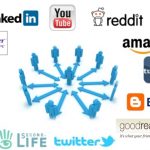How can you not?
I think location and demographic data are the most valuable types of data. Through this, all sorts of things can be accomplished. I know that personally, I use my Balance card at Walgreens, my VIC card at Harris Teeter, my PetPerks card at PetSmart, and an assortment of other cards. All of these locations that I frequent are in a literal circle around my house. If you put my card usage on a map, I would likely be in the dead center of the circle. Someone could at least narrow down the major road I live off of based on where I shop. Also, based on online shopping and these in-store purchases, and my social media profiles, my demographic and economic status would be easy to gauge. I think all of this demographic information is easy to market, target, and pretty easy to come by, so I see that as the most valuable.
If I owned this data, I’m not sure what I would do with it. If I cared enough to own it, I would likely want to find out where the most young adults lived in Raleigh, and I would use it to market materials and send out flyers in the mail for companies they’d be interested in. I know my neighborhood is a lot of young professionals and young families, so I would likely target them for places that I know are nice, but not too pricey.
I definitely think these companies are justified in how they take data. I generally think it’s a fair trade (as far as I know). As someone else in the class said in their blog post, the exchange of being able to use something for free makes me feel okay about them using that information. Also, it seems that people keep forgetting that we signed up for these things. It’s not their fault that we are too lazy to read. Plus, Facebook makes my life easier than ANYTHING. For contacting people, keeping in touch, doing school things, finding people…sure they can have a bit of information about me in exchange for making my life easier!
I know I put out all sorts of information. Facebook and LinkedIn basically has my life story. My wedding date is on my Life Events on Facebook, my family is listed on my page. I “like” retailers, movies, stores, and games I enjoy. LinkedIn has a comprehensive history of my education, the years, my age, my field, my work, and my skills. I’ve been applying for jobs, and every application I’ve filled out has asked for a linkedin profile as a required field. How can you not be online? Nowadays you are basically forced to have an online presence with some pretty invasive information. I’d say that just those two apps/accounts alone tell almost everything about who I am in a nutshell. For a while I had my political affiliation and religion listed on my page. It even asks what gender you are interested in on Facebook…why the heck does that matter?! It’s just funny to me that as a young user of Facebook, I answered EVERYTHING on my page that it allowed me, so it’s floating around somewhere who I am. I think as one person I’m not incredibly valuable. But a whole database of Facebook users probably generates a TON of information and is quite valuable.

 Previous Post
Previous Post Next Post
Next Post
It’s very interesting how fine-tuned data mining and targeted advertising can become, to the point that they can know shopping habits as well as economic status. It’s kind of amazing that companies making targeted ads can know exactly which products would be too pricey for certain customers and which might be too pedestrian for others. Still, like you’ve said, if we put this data out their by our own fruition, and it in this way is more beneficial to us, then overall it does sound like a pretty good deal for all parties involved. Though like we said in our presentation, be careful calling these services free, since you had to pay for the device to use them and data itself is a form of commerce by this point.
The problem with the idea that consumer data is a fair trade for accessing a service for “free” is that the companies were making money off of our access before data commodification became so large. Ad revenue, memberships and accounts, and direct shopping paid for these services before – now companies are seeing an added benefit, while consumers get nothing new.
I hadn’t actually thought about LinkedIn when I was writing my post- I keep forgetting I have one. I have to say, my life story is not on Facebook; I honestly don’t use it all that often. Facebook is mainly a tool for me to communicate with people whose phone numbers I don’t have. But I do have enough social media profiles and vic cards and such that it would be possible to figure out my life from all of that- though I doubt it would be all that easy.